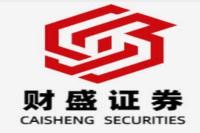Shenzhen's AI Ambitions: A Deep Dive into the "AI Pioneer City" Initiative
Meta Description: Shenzhen's ambitious plan to become an AI pioneer city, including massive funding for training, data, and model development, plus initiatives for industry application, talent cultivation, and investment. #AI #Shenzhen #ArtificialIntelligence #Innovation #Funding
Wow! Hold onto your hats, folks, because Shenzhen is seriously upping its game in the AI arena! This isn't just some small-scale initiative; we're talking a full-blown, multi-billion-dollar commitment to transforming itself into a global AI powerhouse. Forget incremental changes – Shenzhen's aiming for exponential growth in the AI sector. This means a massive injection of cash into research, development, and deployment, coupled with smart policies aimed at fostering innovation and attracting top talent. We're not just talking about throwing money at the problem; this is a strategic, multifaceted approach designed to build a robust and sustainable AI ecosystem. The plan, unveiled on December 18th, 2023, is packed with juicy details, including generous "voucher" programs, substantial funding for research and development across various AI sub-fields, and a huge commitment to fostering a thriving AI investment environment. Think of it as a comprehensive, meticulously crafted blueprint for AI dominance. Get ready to delve into the specifics, because this is one plan that's going to make waves globally. Prepare to be amazed by the sheer scale and ambition of Shenzhen's AI vision!
Massive Funding for AI Development: "Voucher" Programs & Beyond
Shenzhen's plan isn't just talk; it's backed by serious financial muscle. The city is aggressively investing in its AI future, allocating hundreds of millions of yuan annually across several key areas. Think of it as a triple-threat approach: fueling the development of AI models, supporting the training of AI talent, and generating vast amounts of high-quality training data. This multi-pronged strategy is designed to create a virtuous cycle of innovation and growth.
The "Voucher" System: This is where things get really interesting. Shenzhen is launching a unique "voucher" system, offering three types of financial incentives:
-
"Training Vouchers" (训力券): A whopping 500 million yuan (roughly $68 million USD) annually is earmarked for this program. Companies, universities, and research institutions can receive up to 50% reimbursement (60% for startups!) on their AI model training costs, with a maximum grant of 10 million yuan. This significant support should dramatically reduce the financial barriers to entry for AI development.
-
"Data Vouchers" (语料券): Another 50 million yuan (around $6.8 million USD) annually will go towards fueling data-driven innovation. Businesses using commercially available datasets for AI model development can receive up to 30% reimbursement on their purchase costs, with a maximum of 2 million yuan per company. Furthermore, companies that publicly share high-quality datasets will be rewarded with up to 1 million yuan annually, boosting collaboration and data accessibility. This is a clever incentive to encourage data sharing and transparency.
-
"Model Vouchers" (模型券): To further stimulate the AI industry, Shenzhen plans to allocate 100 million yuan (about $13.6 million USD) annually to support the adoption of pre-trained AI models. Companies successfully deploying these models in real-world applications can receive up to 30% reimbursement on their purchase costs, with a maximum grant of 2 million yuan. This incentivizes the adoption of cutting-edge AI technology and drives innovation across multiple sectors.
Beyond the Vouchers: This isn't the entirety of the investment. Shenzhen is also committing a further 300 million yuan (around $40.8 million USD) annually to fundamental AI research. This focuses on cutting-edge areas like AI's mathematical foundations, core algorithms, embodied AI, autonomous driving, and AI chip development. This strong emphasis on foundational research demonstrates a long-term vision for sustainable AI growth. Additionally, a substantial AI industry fund is being established, aiming to attract over 10 billion yuan (approximately $1.36 billion USD) in investment. This fund will prioritize early-stage investments in small and medium-sized enterprises (SMEs) and longer-term, high-risk, high-reward projects.
Industry Applications & Sectorial Transformation
The ambitious plans outlined in Shenzhen's initiative aren't just about developing cutting-edge AI technologies; they're about using them to transform various industries. The city is actively pursuing the integration of AI into various sectors, from manufacturing and services to education, healthcare, and public safety.
Shenzhen's plan dedicates significant resources to fostering the application of AI across multiple sectors. This includes:
-
AI in Manufacturing and Services: A hundred million yuan (roughly $13.6 million USD) annually will be dedicated to funding AI projects in these critical sectors, providing grants of up to 2 million yuan for projects with broad application potential and up to 10 million yuan for truly groundbreaking initiatives. This demonstrates a commitment to utilizing AI to boost productivity and modernize existing industries.
-
Open Government Datasets & Applications: A further 50 million yuan (approximately $6.8 million USD) is allocated annually to open up government datasets for AI development. The city plans to release at least 50 new datasets annually, focused on areas like public services, education, healthcare, and transportation. This open data strategy is designed to encourage innovation and collaboration within the AI community, and to also empower developers to create solutions for pressing social needs. Grants of up to 5 million yuan will be available for successful AI applications developed using these datasets.
-
AI Hardware & Software Support: The initiative explicitly mentions support for AI hardware like AI-powered computers, smartphones, wearables, and smart home devices. Furthermore, it highlights support for the development and deployment of AI software, with grants of up to 10 million yuan for software with original intellectual property and successful commercialization. This proactive approach aims to stimulate growth across the entire AI value chain.
Cultivating AI Talent: Education, Training, and Incentives
Shenzhen recognizes that a thriving AI ecosystem relies on a robust talent pool. The initiative outlines several key strategies to attract, train, and retain AI professionals:
-
University Partnerships: The initiative emphasizes collaboration with universities to develop high-quality AI education programs and to support the development of AI-related disciplines within existing curricula. It also prioritizes the development of high-quality AI educators.
-
"Industry-Academia" Collaboration: A new joint training program with Hong Kong is planned to focus on creating top-tier AI engineers and product managers. This cross-border collaboration leverages the strengths of both regions to create a highly skilled workforce.
-
Industry Training Centers: The city is supporting the establishment of industry-led training centers to further upskill the existing workforce. This ensures practical, hands-on experience for students and professionals, aligning education with industry needs.
-
Incentives for Talent: The initiative offers substantial incentives to attract top AI talent, both domestically and internationally. This includes financial support for research, team building assistance and comprehensive "support packages" for leading AI professionals. Further incentives are provided for overseas AI professionals to establish businesses in Shenzhen.
This concerted effort to cultivate a strong AI talent pipeline is critical for sustaining Shenzhen's AI ambitions in the long term.
Building a Thriving AI Investment Ecosystem
Shenzhen's commitment to AI extends beyond direct funding and talent cultivation; it includes creating a supportive investment environment. The plan includes:
-
The AI Industry Fund: A significant AI industry fund is being created with the goal of attracting over 10 billion yuan in investment. This fund will focus on early-stage startups and long-term projects, providing crucial capital for AI innovation.
-
Financial Incentives for Businesses: Various financial incentives, including loan subsidies, guarantee fee assistance, technology insurance subsidies, and intellectual property financing subsidies, are being offered to reduce the financial burden on AI businesses. This is designed to create a more favorable business environment and encourage investment in AI.
-
Industry Events and Networking: The initiative explicitly supports the creation of high-profile industry events and competitions, designed to foster collaboration, attract investment, and showcase Shenzhen's AI capabilities to the global community.
This multifaceted approach to investment aims to create a dynamic ecosystem where capital flows freely to promising AI ventures.
Frequently Asked Questions (FAQs)
Q1: How long will this initiative last?
A1: The initiative's current measures are in effect for two years, starting December 18th, 2023. However, given Shenzhen's commitment to AI, it's highly likely that similar or enhanced initiatives will continue beyond this initial timeframe.
Q2: Who is eligible for the "voucher" programs?
A2: Eligibility varies slightly based on the type of voucher. Generally, companies, universities, research institutions, and startups working on AI model training, data acquisition, or model deployment are eligible. Specific requirements and application processes are likely to be detailed on relevant government websites.
Q3: What kind of AI research is being prioritized?
A3: Priority areas include foundational research in AI mathematics, core algorithms, and infrastructure, as well as more applied research in areas like embodied AI, autonomous driving, and AI chips.
Q4: How will Shenzhen ensure the successful implementation of this ambitious plan?
A4: Success will depend on several factors, including effective bureaucratic processes, collaboration between government agencies, industry, and academia, and the ability to attract and retain top talent. Regular evaluations and adjustments to the plan are likely crucial for optimal results.
Q5: What are the potential risks associated with such a large investment in AI?
A5: Potential risks include the possibility of misallocation of resources, the difficulty in predicting future technological trends, and the potential for negative societal impacts if AI is not developed responsibly. Careful monitoring and proactive risk management strategies will be essential.
Q6: How will Shenzhen measure the success of this initiative?
A6: Success will likely be measured by several metrics, including the number of new AI companies founded, the growth of the AI industry's overall economic output, the number of high-skilled jobs created, and advancements in AI research and development. The government will likely conduct periodic assessments to track progress and make adjustments as needed.
Conclusion
Shenzhen's "AI Pioneer City" initiative represents a bold and ambitious vision for the future of AI. The significant financial commitment, coupled with a comprehensive strategy encompassing research and development, talent cultivation, industry application, and investment promotion, positions Shenzhen as a major player in the global AI race. While challenges undoubtedly exist, the scale and scope of this initiative suggest a strong commitment to establishing Shenzhen as a leading AI innovation hub. The coming years will be crucial in observing the initiative's impact and its success in achieving its ambitious goals. The world is watching, and Shenzhen is ready to lead the charge.



